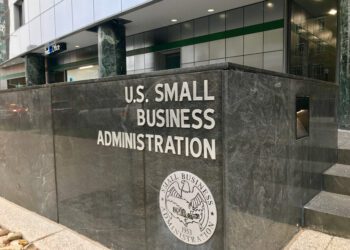Family businesses have the potential, the resources, and the market position to lead sustainable transformations in the many key global industries they dominate. And they possess distinctive advantages that enable them to act. Family businesses tend to be values-led, with long-term investment goals because they’re less beholden than public companies to the pressures of the quarterly reporting cycle. Their primary goal is to protect a legacy for the generations to come. By embracing environmental, social, and governance (ESG) issues, they can increase their impact across sectors and geographies.
This is not wishful thinking. More than one-fifth of the global shipping industry is run by a handful of family-owned businesses. In automotive, just 36 families control companies that account for 55% of the total global market. Look across other sectors; large family-owned businesses dominate retail clothing, engineering and construction (see graphic below). This presents a tremendous opportunity for positive change.
Some family businesses are already stepping up to lead on ESG by integrating these goals into their operations. But, according to PwC’s Family Business Survey 2021, the majority of respondents have yet to grasp that the impulse to do well by society needs to be embedded in the business’s operations—rather than separated out as traditional philanthropy. According to the survey, overwhelming majorities of family business owners are prioritizing expanding into new markets (82%) and improving digital capabilities (80%), while only 39% rank sustainability and ESG as top priorities.
Family business leaders are realizing their potential contributions can have a startling effect on the future of the planet, particularly if they collaborate with one another.
Take chocolate production. The issues of child labor and the poverty of small cocoa farmers in less-developed countries have been in the headlines for more than a decade, touching most major brands, and resulting in ongoing legal action by activists. In 2016, however, the chocolate maker Barry Callebaut—a 110-year-old family concern based in Zurich, Switzerland, whose ingredients are present in one out of four chocolate and cocoa products sold around the world—launched “Forever Chocolate,” aiming to achieve 100% sustainable chocolate by 2025. Five years on, it’s made significant progress on several aspects of sustainability: for example, in 2019–20, the company reported an 8.1% reduction in carbon emissions, trained close to 95,000 cocoa farmers on child labor awareness, and sourced 100% sustainable cocoa for its global gourmet brands.
Then there’s coffee: a US$160 billion industry that employs more than 25 million families of farmers globally. In 2018, a collaboration funded by two direct competitors—llycaffè and Lavazza—led to the public release of the first fully open-access coffee arabica genome sequence. The aim? To help the entire coffee industry value chain, from farmers to brands, prepare for the challenges springing from climate change.
Punching above their weight
To explain why family business could play such an outsized role in furthering ESG goals, it’s useful to look at the wider ESG landscape. The move to embrace sustainability is already a seismic shift for businesses, powered by massive expectations from stakeholders, ambitious commitments from governments, and a tidal wave of capital investment. ESG funds, for example, attracted a record $51 billion of net new money from investors in 2020, more than double the amount the previous year. Large publicly held corporations and governments, through both sticks (regulations) and carrots (targeted subsidies) are reshaping the way business operates. And indeed, many corporations are stepping up: they are making commitments to reduce carbon emissions and sourcing electricity from renewable resources; they are making their boards more diverse and publishing sustainability reports.
But today, such actions are just table stakes. To build trust and secure their futures, businesses must go further and build ESG into all aspects of their business: their reporting, strategy, and transformation plans. And family businesses are uniquely positioned and incentivized to do so for a couple of key reasons. First, they are more trusted than any other sectors. Some 67% of respondents in the Edelman Trust Barometer’s 2020 report said they trusted family businesses, compared to just 58% who trust public companies—making family businesses the most trusted type of enterprise. (Governments and the media came in last.)
Second, their deeply held values and shared commitment to contributing to society are hard-wired. Taking care of their workforce and communities, for example, have long been part of their DNA, dating back to well before formal ESG commitments became a global trend.
But the internalization of ESG will make a big difference. And we are beginning to see that particularly in Asia. In our latest family business survey, more than 75% of businesses in China, Japan, and Taiwan said they put sustainability at the core of everything they do, compared to just 23% in the US and 28% in Canada. Businesses in Western economies, and especially in North America, prioritized giving back to the community—a shorthand commonly used to describe more traditional philanthropy.
By Peter Englisch
About the author: Peter Englisch is a global family business and EMEA entrepreneurial and private business leader. He is a partner with PwC Germany.
Download the full report at https://www.pwc.com/gx/en/services/family-business/family-business-and-esg.html.












